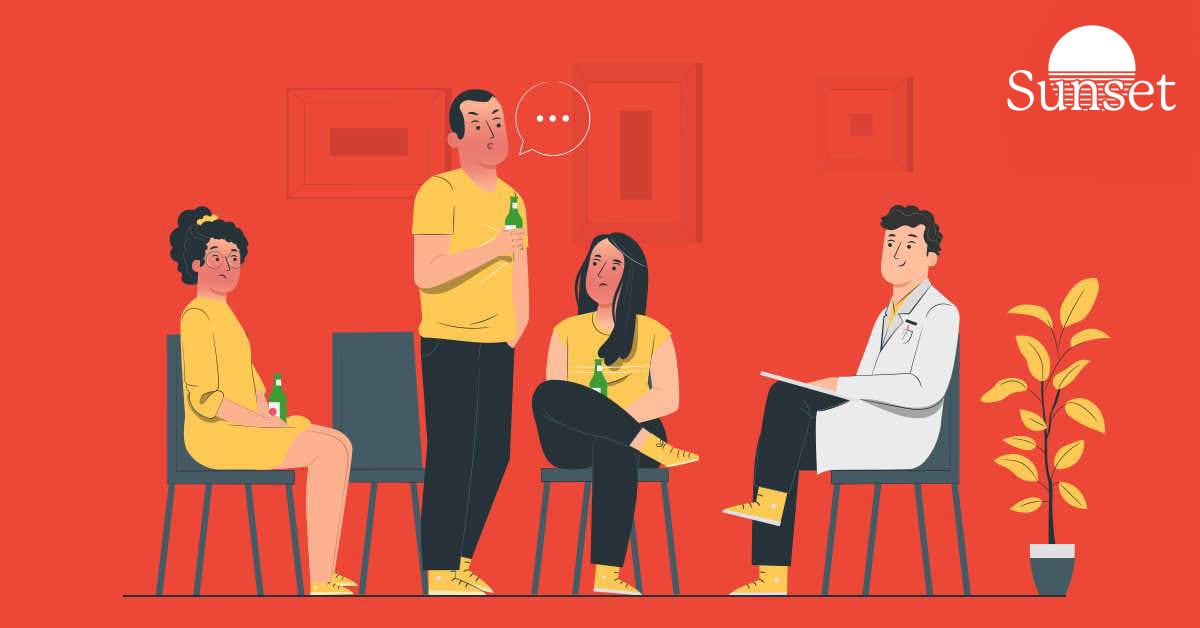Both are H2 blockers, and neither addresses the enzyme problem. Zantac (ranitidine) is largely off the market, so Pepcid is more common.

Pepcid for Asian Flush (Famotidine): Does It Work, Is It Safe?
|
|
Time to read 3 min
|
|
Time to read 3 min
If you’ve ever gone bright red after just one beer or cocktail, you know the feeling. That’s Asian flush (or alcohol flush reaction). It’s not just embarrassment. It’s your body struggling.
Here’s what’s happening: most people break down alcohol into acetaldehyde (toxic stuff), and then quickly process it into harmless acetate.
But if you have a variation in your ALDH2 enzyme (very common in East Asian populations), that second step slows way down.
Acetaldehyde builds up, and boom: your face turns red, your heart races, and you might feel awful.
Think you might have Asian Flush? Read our full blog:
Pepcid (generic name famotidine) is an over-the-counter drug usually taken for heartburn. But a lot of people with flush pop one before drinking.
Why? Pepcid blocks histamine receptors, which can calm down some of the redness.
And yes, it can work. Your face might not get as red. You might “look fine” at the party.
But here’s the catch: Pepcid does nothing to fix the actual enzyme problem.
Acetaldehyde is still piling up in your body. You’re just covering up the warning light.
This is where things get tricky:
It’s cosmetic, not protective. Just because you don’t look red doesn’t mean your body isn’t stressed.
Cancer risk stays. People with ALDH2 deficiency who drink have a much higher risk of esophageal cancer, stomach cancer, and other alcohol-related issues.
False confidence. Without the flush, it’s easy to drink more than you should—which just means more toxic buildup.
Side effects. Pepcid is safe for most people short-term, but it hasn’t been properly studied as a pre-drinking ritual.
Doctors don’t recommend using Pepcid this way. It’s like putting tape over your check engine light.
If you deal with flush, here are some healthier ways to handle it:
Know your limit. Even a small amount of alcohol can cause high acetaldehyde levels.
Choose lower-alcohol drinks. Light beer, spritzers, or mocktails can reduce exposure.
Stay hydrated. Water doesn’t cancel the flush, but it helps your body process alcohol.
Eat before drinking. Food slows absorption, making symptoms less intense.
Consider skipping. The safest option is to abstain from drinking.
If you’re hoping Pepcid will let you drink “normally,” the answer is no. It can make you look less red, but it doesn’t make drinking safer. Your body is still fighting the same toxic battle. It just looks quieter on the outside.
The only way to truly avoid the risks of Asian flush is to drink less or not at all.
Asian Flush is often confused with Rosacea, Read our blog:
Pepcid might help your face, but it doesn’t help your health.
If you’re reaching for it before drinking, know that you’re not curing flush.
You’re just hiding it.
With Claisen, you can skip the gambling of random medications or quick over-the-counter fixes.
Get a tailored, science-backed guidance to address the root cause of your bloating and gas.
You might not even need a medication!
Pepcid (famotidine) can reduce facial redness from Asian flush.
It does not fix the underlying enzyme deficiency.
Acetaldehyde still builds up in your body, keeping health risks high.
Using Pepcid before drinking can mask warning signs and encourage overdrinking.
The safest approach is limiting or avoiding alcohol altogether.
It may reduce redness, but it doesn’t stop the toxic effects of acetaldehyde buildup.
Most people take it 30–60 minutes before drinking, but this is not a medically recommended use.
Both are H2 blockers, and neither addresses the enzyme problem. Zantac (ranitidine) is largely off the market, so Pepcid is more common.
No. It only changes appearance, not risk. The underlying health dangers remain.
Limit alcohol or avoid it. No pill can remove the long-term risks linked to ALDH2 deficiency.

